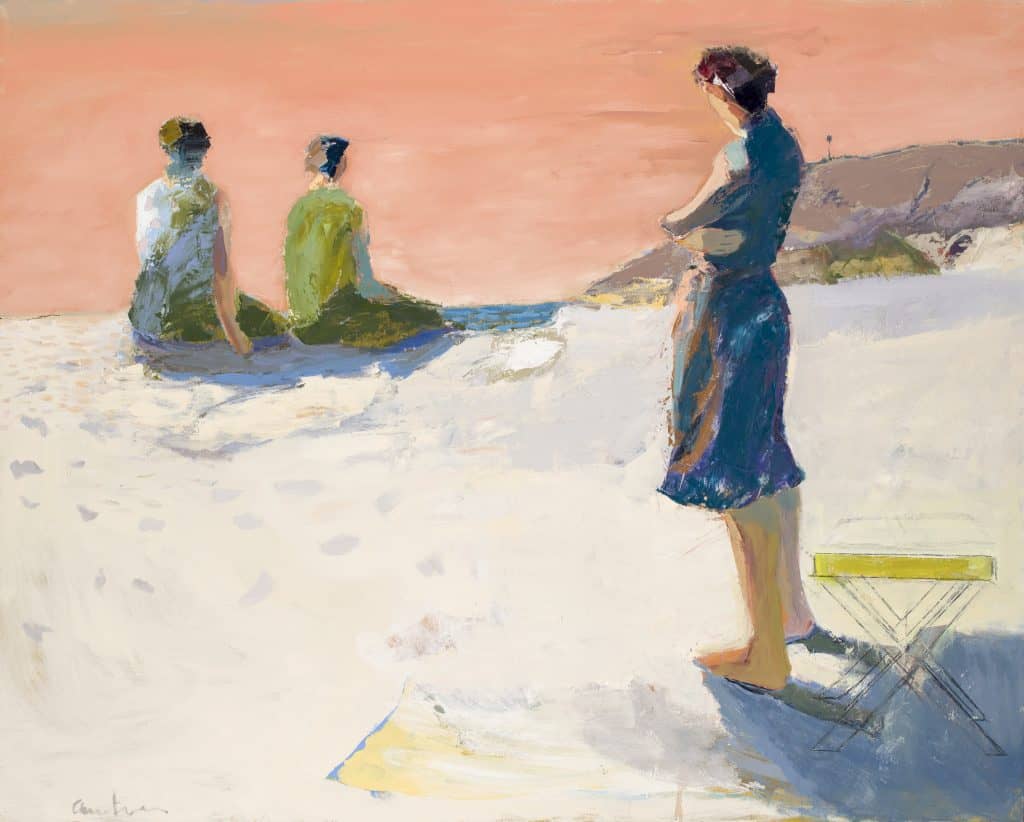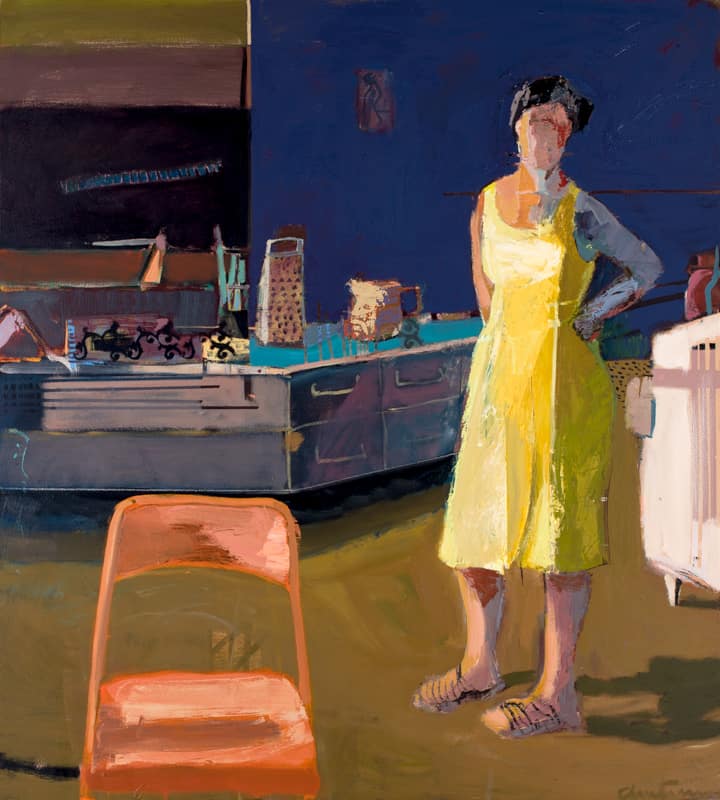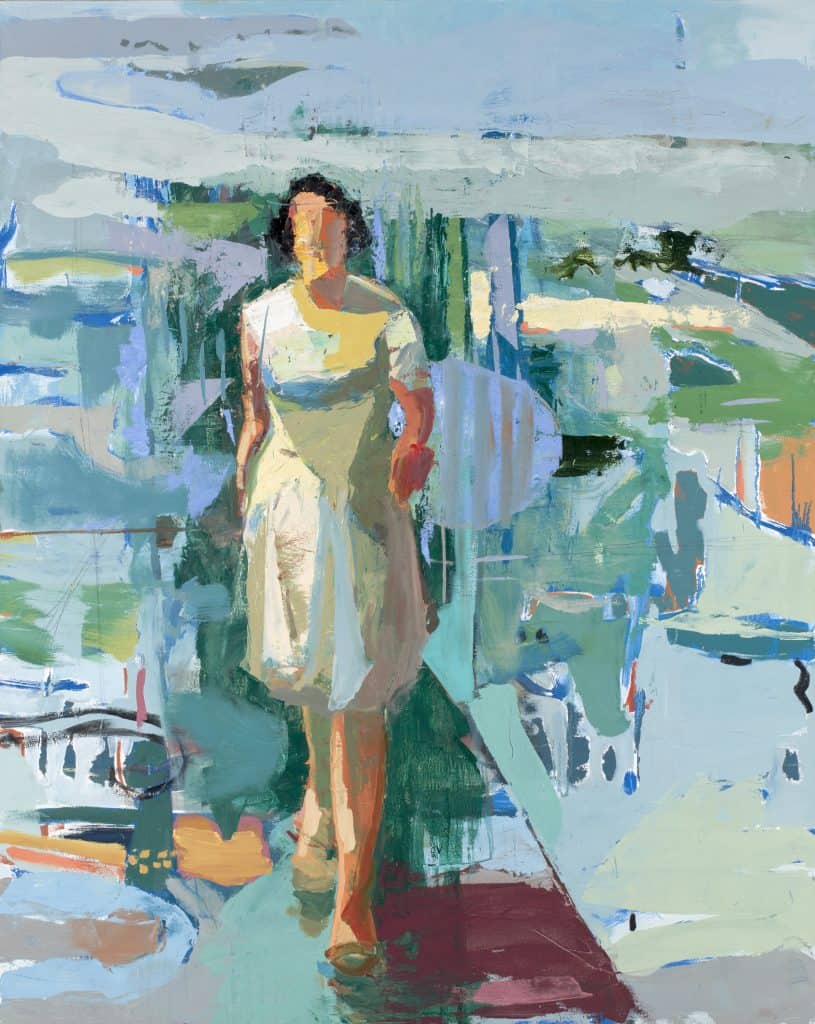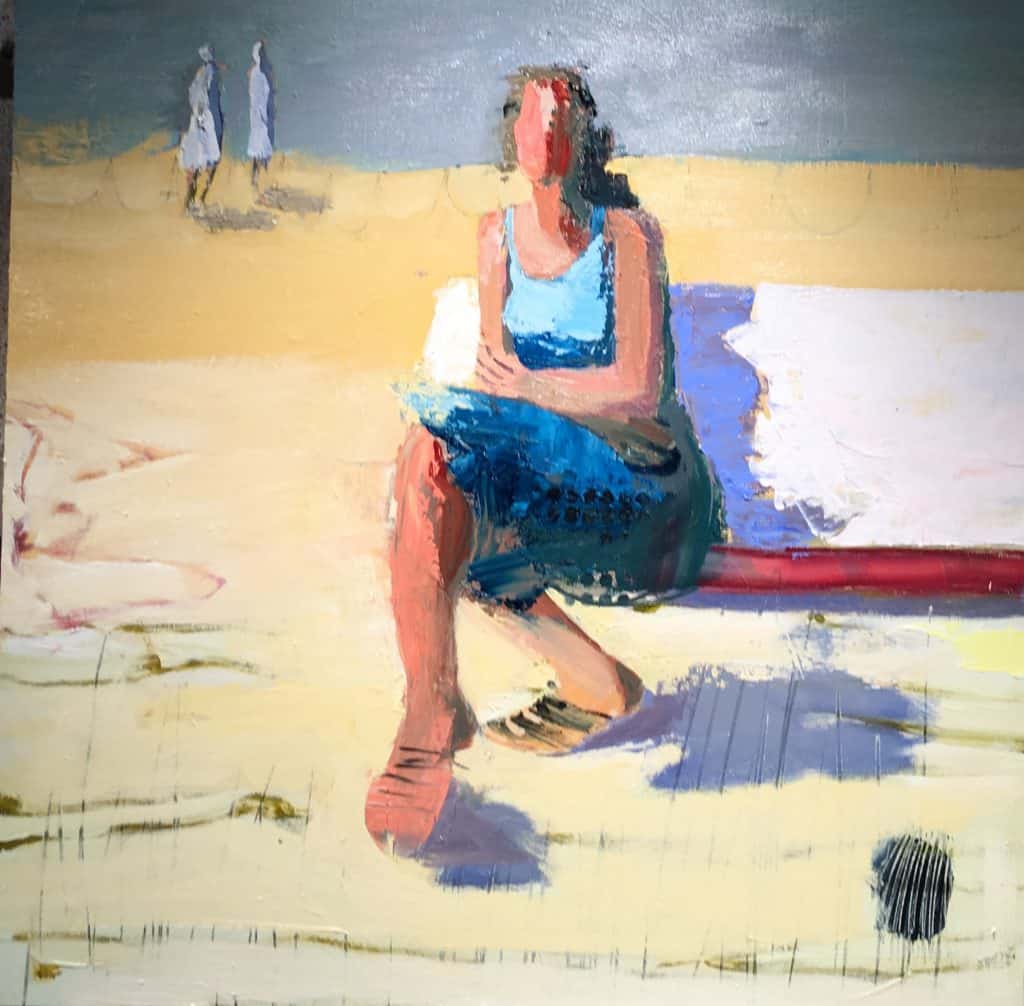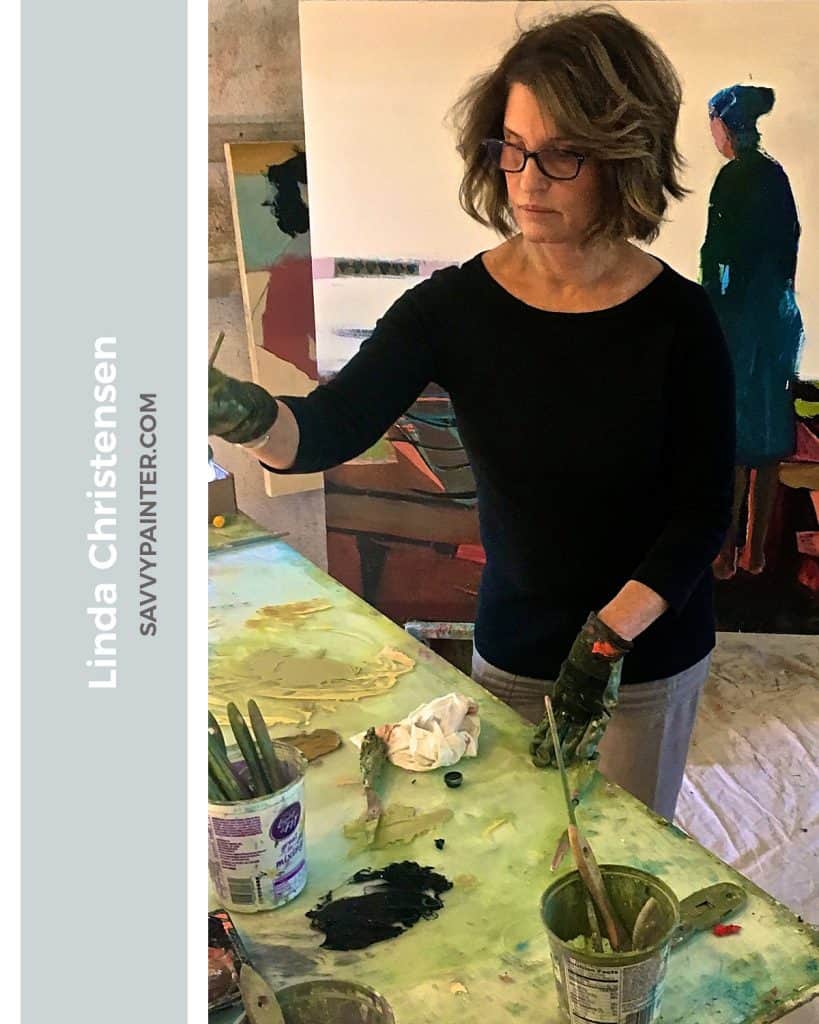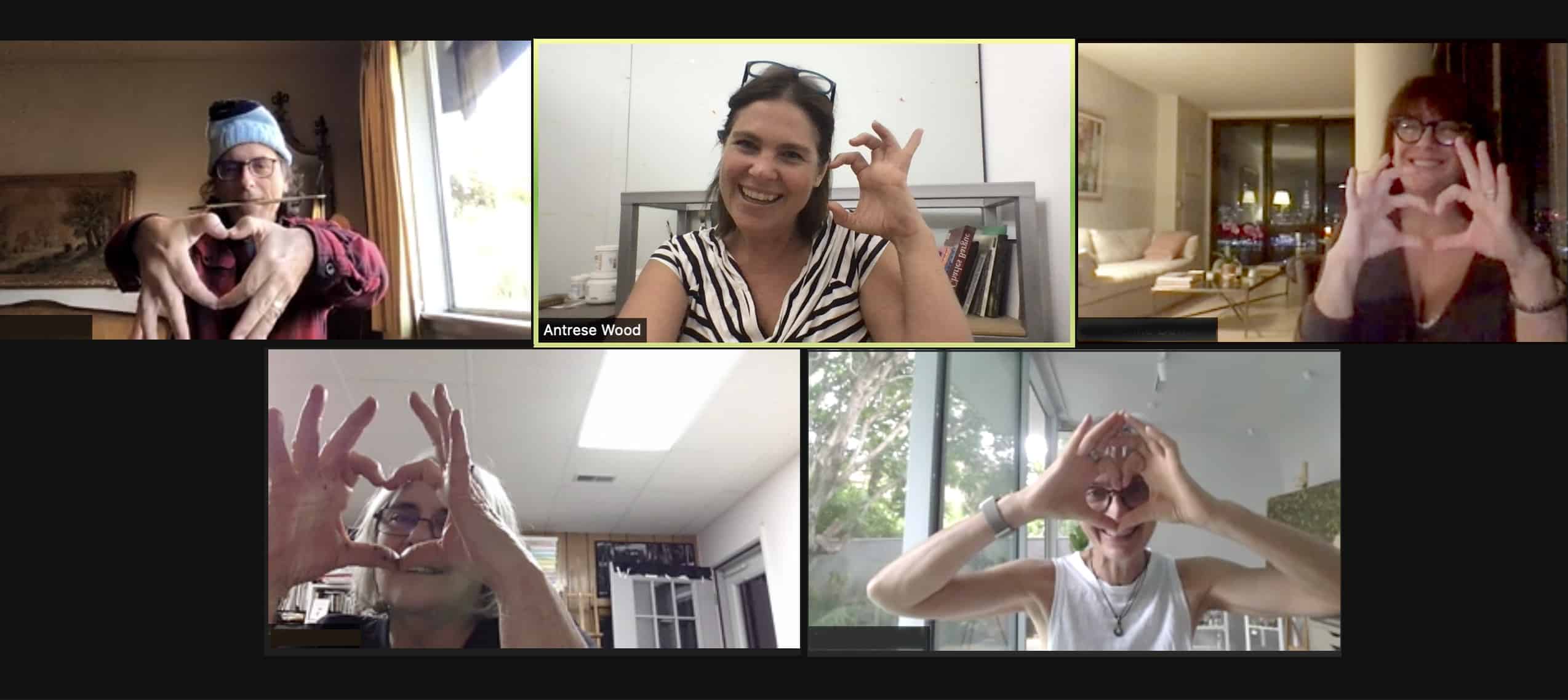Can you really capture emotion in art? Is there something that you can convey on the canvas that transfers to the viewer? Emotion is such a complicated and complex human experience that the effort to capture it on canvas seems like an impossible task. My guest, Linda Christensen is proving that notion wrong with her amazing artwork.
Linda is a Northern California based artist who paints a moment in time in women’s lives, she looks for the emotional connection and tries to capture it. She received her Bachelor of Arts degree and her Graduate Certificate from the University of California, Santa Cruz.
In our conversation, Linda opens up about how she got started as an artist, habits and rituals that keep her in a creative flow, how a David Park painting influenced her, why she is ok with “getting it wrong,” tips for connecting with a gallery and pricing artwork, and much more. I know that artist like you will get a lot out of our wonderful conversation.
Expressing emotion in art.
Have you ever had that moment in your career where you finally found someone who expressed themselves creatively as you do? Who was that artist for you? What was it in their work that resonated with you? For Linda Christensen, that moment came when she was viewing a painting by the figurative artist, David Park. When she saw one of his paintings, Linda had an immediate and emotional connection that she’d never experienced before. That encounter with the David Park painting told Linda that emotion could be captured in a painting.
Embracing distraction.
What is your process like in the studio? Do you have a checklist you go through so you can get into your creative flow? Some artists love to work with music playing or after they’ve spent time in an art book, but everyone has to find their groove. I’ve found it helpful over the years to hear from my peers like Linda Christensen who are more than willing to share what they’ve found useful as they approach the canvas. Linda likes to knock out all of her errands and personal tasks before she steps foot into her studio. She also loves to have an old black and white movie playing in the background that she’s seen before so she can have a contrast to her painting process. I loved hearing all about Linda’s studio process and her love for Catherine Hepburn movies; I hope you enjoy it too.
Getting it wrong.
Do you ever find yourself jumping through hoops and trying to please someone else or working fulfill some idea of what you “ought” to be doing with your artwork? Do you give in to those voices and let them shape your art or do you try to silence them? Artist Linda Christensen has embraced the idea of “getting it wrong” because she knows that she’ll never “get it right.” Someone will always have a critique ready but Linda is ok with that, and she encourages other artists to embrace this mindset as well. At the end of the day, none of us are, as Linda says, “movie-ready” we all have flaws, why not embrace them?
Outline of This Episode
- [2:30] I introduce my guest, Linda Christensen.
- [4:00] What led Linda to a career as an artist?
- [5:30] Linda talks about how David Park influenced her artwork.
- [7:45] How Linda describes her artwork and how her process plays out.
- [11:20] Habits and patterns that help Linda in her studio.
- [15:30] Silencing the inner critic.
- [17:15] How do you decide if you’ve finished a painting?
- [19:40] Linda talks about how she navigated her early career.
- [22:00] Advice Linda has for artists trying to get their artwork featured in galleries.
- [26:00] How does Linda price her artwork?
- [31:45] Linda talks about how her process changes each time she goes to the canvas.
- [37:00] What does it mean to “get it wrong?”
- [43:00] What does Linda hope people walk away with after viewing her paintings.
Other artists mentioned on this episode
Resources Mentioned on this episode
- Linda’s website
- Linda on Instagram
- Linda on Facebook
- Galleries:
Connect With Antrese
Paintings
